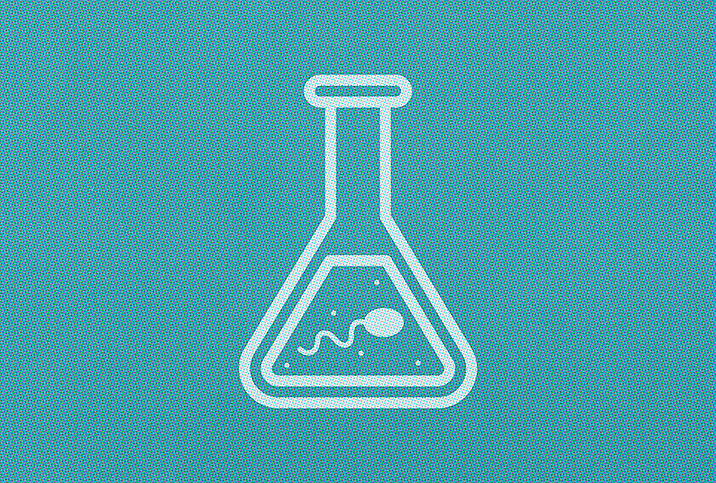Male Fertility 101

The science of female fertility has been widely explored, but what about males? Here's the basic biology behind male fertility, when it peaks and why, what issues can threaten it and how to protect yours.
It all begins with puberty
Males are unable to father children prior to puberty. Along with physical changes—the development of pubic and underarm hair, growth of the penis and testicles, increased sweating and body odor, acne, deepened voice and growth spurts—puberty also marks the beginning of fertility.
Once puberty begins—around 11 to 13 years old, usually about a year after girls start puberty— boys are able to start producing spermatozoa, or sperm, and may well begin having nocturnal emissions, or wet dreams.
And just for the record, wet dreams are not something that only young boys experience. Adolescent girls, too, are just as likely to have nocturnal emissions that may result in orgasm. Research indicates that around 8 percent of dreams contain sexual content of some kind.
Peak fertility and decline
Male fertility peaks between the ages of 30 and 35 and declines naturally as men get older, leading to the production of less semen and less healthy sperm. Males experience a later and slower decline in fertility than females, resulting in a 1-2 percent decrease in sperm motility and morphology each year. Unlike females, males don't become infertile because of age alone.
Though a man's fertility will continuously deteriorate as he grows older, he can retain the ability to father children into his senior years. However, higher male age is associated with an increased risk of complications for his children—one 2010 study indicated men 50 and older are 2.2 times more likely to father a child with autism than men 29 or younger.
Additionally, some research indicates increased paternal age may cause greater risks of miscarriage, rare birth defects, schizophrenia and childhood acute lymphoblastic leukemia. The reasons for the effect of paternal age on a child's health are much debated.
Infertility
In order for conception to occur, sperm must be present in high enough quantities in the semen that's ejaculated from the penis, and healthy enough to make the journey to an egg that's ready for fertilization.
Assuming a man has not undergone a vasectomy, male infertility can be caused by low sperm production, abnormal sperm function, blockage of sperm, illness, injury and some chronic health problems.
In addition, multiple medical problems can be responsible for male infertility. Examples include ejaculation issues, undescended testicles, tumors, antibodies that attack sperm, hormone imbalances, chromosome defects, celiac disease, certain medications and surgeries, and defects of the tubules that transport sperm.
Testicular overheating, and chemical and radiation exposures can also play a role, as can certain lifestyle factors.
Maximizing fertility and slowing its decline
Abstaining from tobacco and drug use, and reducing alcohol consumption can help maintain men's fertility. It's also important to eat a balanced diet and maintain a healthy weight.
In addition, it's advisable to keep testicles cool by avoiding constricting bottom garments, long periods of sitting and placing a laptop on your lap. Also, be sure to protect yourself from any toxins or heavy metal exposures.
Overall, you should monitor your sexual health and fertility through regular checkups with your doctor, especially if you're trying to conceive. Fertility is assessed via noninvasive semen analysis—samples are collected by masturbation—which checks for the quantity and quality of sperm. There are many brands of home fertility testing kits available online or in your local pharmacy which may make sample collection more comfortable, although you should be aware that these tests measure only sperm count and there are other factors you'll need to assess for a full picture of your fertility.
Freezing sperm—or cryopreservation—is also an option for men who may want to have children later in life but are concerned about fertility decline. If you have risk factors for decreased fertility, there are options, including surgical solutions, medications, hormone treatments and/or assisted reproductive technology (ART), for males whose sperm is healthy but can't reach an egg for fertilization.
A proactive approach
Having children may or may not be a part of your immediate agenda. Regardless, understanding fertility and keeping your sperm healthy is always a good idea.
If you're concerned about your fertility—especially if you may face risk factors—talk to your doctor about how to maximize your chances of conceiving when the time is right.


















